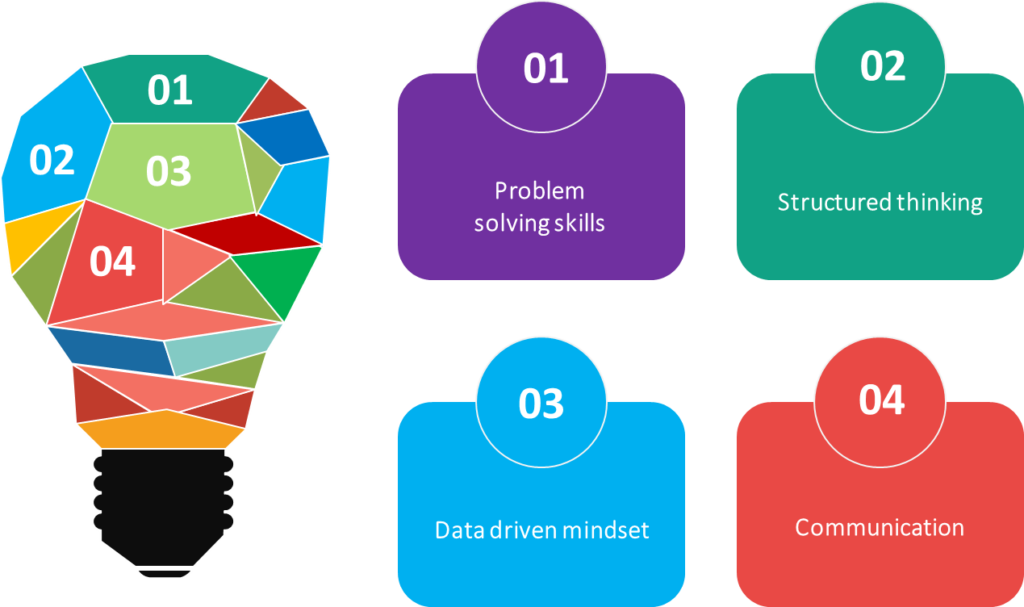The Importance of Aptitude Skills for Engineering Students: Placements, Exams, and Beyond
In today’s competitive landscape, mastering aptitude skills is essential for engineering students looking to secure a job or further their education. Whether aiming for campus placements, off-campus job switches, or competitive exams for higher studies, aptitude tests are a consistent screening tool used across industries and academic institutions. Here’s why preparing for aptitude tests is a crucial step in every engineering student’s journey.

1. Aptitude as a Screening Criterion: Essential for Campus Placements and Beyond
For engineering students, aptitude tests are the foundation of most placement processes. Around 70% of companies use aptitude as an initial screening tool to shortlist candidates. This means that if you’re aiming to secure a job through campus placements, a strong aptitude score is your entry ticket. Companies use these tests to evaluate core skills like problem-solving, numerical reasoning, and logical thinking—qualities essential for success in technical and corporate roles alike.
But aptitude’s importance doesn’t stop with campus placements. Even if you plan to explore off-campus opportunities later, you’ll likely encounter aptitude tests as a standard part of the hiring process. Many early-career professionals switch jobs or look for better positions within their field, and companies use aptitude as a quick, reliable measure of a candidate’s capabilities.
2. Opens Doors for Higher Studies: MBA, MS, M.Tech, and More
Aptitude skills aren’t just for job placements—they’re also essential for competitive exams that lead to higher studies. Whether you’re considering an MBA, MS, M.Tech, or any other advanced degree, aptitude tests are often a significant part of the admissions criteria. Exams like CAT, GRE, GATE, and GMAT heavily focus on aptitude skills. If you start building these skills during your college years, you’ll have a head start when applying for these programs.
For example, many students aiming for an MBA will take the CAT, which includes rigorous sections on quantitative, logical reasoning, and verbal skills. Similarly, for students looking to pursue MS programs abroad, the GRE assesses aptitude skills extensively. Preparing these skills early on during college allows students to go deeper into subject-specific studies in their final year, without the pressure of building a foundation from scratch.
3. Essential for Government and Public Sector Jobs
Aptitude tests are equally important if you’re considering jobs in government sectors or public sector undertakings (PSUs). Competitive exams like those for civil services, banking, and PSU jobs include aptitude sections to filter out candidates. These exams are highly competitive, and the students who succeed are often those who have a strong foundation in aptitude from their college days.
For instance, students targeting civil services or public sector jobs will encounter a wide array of quantitative and reasoning questions. Preparing for these tests while already working is a daunting task; however, those who invested time in building these skills during college find it far easier to revise and sharpen them for such exams.
4. Smooth Transition for Exams Like CAT During Your Career
If you plan to pursue exams like CAT or other postgraduate admissions while working, early preparation during college is incredibly advantageous. Many engineering graduates take up jobs immediately after college and decide to pursue higher studies a few years later. At that point, balancing a job with aptitude preparation can be tough. Building a solid aptitude base while in college ensures that, when the time comes, you’re not starting from scratch. You’ll find it easier to brush up on these skills, allowing you to focus on your job without sacrificing your study goals.
5. Boosts Your Professional Skills: Problem Solving, Structured Thinking, and Communication

Aptitude preparation isn’t just about clearing tests; it’s also about building essential skills for any career. Here’s how:
- Problem-Solving Skills: Aptitude tests train you to approach complex problems logically and quickly, a skill highly valued in any field.
- Structured Thinking: The practice of breaking down complex problems into manageable steps teaches structured thinking, which is critical for analytical and managerial roles.
- Data-Driven Mindset: Preparing for data interpretation and logical reasoning sections in aptitude tests helps foster a data-driven approach to decision-making—a valuable asset for anyone aiming to work in tech, finance, or business roles.
- Communication Skills: Many aptitude tests include verbal sections, improving your comprehension and language skills. This translates to better communication, a must-have in both technical and non-technical roles.
6. Adds Flexibility and Adaptability to Your Career Path
By building aptitude skills early, you’re adding flexibility to your career. Whether you choose to continue in a technical role, move into management, or transition into a different field, your aptitude skills will be a strong asset. For engineering students, this preparation creates a foundation for adaptability in the workforce, enabling you to switch roles or explore new industries more easily.
Looking to understand how to get started with the preparation? Check this article: https://www.learntheta.com/placement-aptitude-preparation/